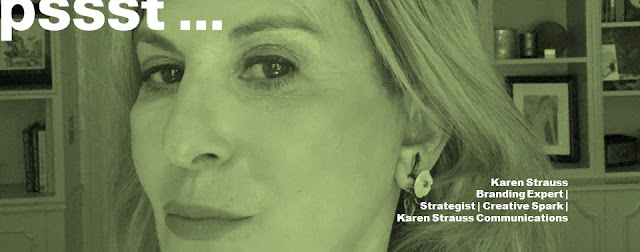WHERE STORYTELLING ORIGINATES FROM
Last week I did a keynote speech on Storytelling. I talked to a European group of marketing directors. It was an inspiring session and a lively debate. But after a couple of minutes I got the impression that everyone was talking about something different. All used the term "Storytelling" often and naturally. But when you listen carefully it was clear that everyone had not only a different view on this topic, they also had a different definition of "Storytelling".
What do you mean by "Storytelling"?
It reminded me how important it is to clearify the definition of "Storytelling" as there are hundreds of definitions out there. I´ll try to simplify this conversation by using four, well, five different definitions.
Hopefully you detect your own definition in the following and you are inspired by one or two others:
1. Rhetoric Technique
The simplest practice of "Storytelling" is within speeches or presentations. In your next speech sprinkle in some little anecdotes - scenes from your personal life, incidents that happen to you lately, extrodinary or odinary observations etc. Present this tiny little "mini-stories" with a simple, active and bold language. This will turn your talk into an individual, emotional and highly memorable speech. "Storytelling" is a very effective rhetoric technique, helpful to everyone who has to speak in front auf others. Leaders benefit from this technique most. Steve Denning has writen a wonderful and very inspiring book about leadership stories. One take away from his "Leader´s Guide to Storytelling": Leadership-Stories must be 1. true, 2. have to have a positive and motivating end, 3. have to be short so they can be repeated easily.
2. Narrative Journalism
Journalists use the term "story" all the time. So is "Storytelling" another word for journalism? Well, yes and now. Any journalist searches for news. Those with the highest attention are called "big stories". That´s what drives a journalist - to find a story like "Watergate" or any "-gate" . But that´s not the only connection between "Storytelling" and "Journalism". "Narrative" journalism, a specific form of journalistic writing, is becoming more and more popular. In comparison to an objective writing style, "narrative jouralism" presents a topic through the lense of an involved protagonist. There are fans and critics of this form of journalism. Critics expostulate that narrative jouralism is too subjective, too simple and tabloid. On the other hand: the audience loves this stories, so the press gets used to it.
3. Corporate Stories
What´s the heritage of this brand? Where does a corporation comes from? This questions can be answered with a Corporate Story. So yes, the term "Storytelling" is associated with Corporate Identity. Vison, mission, brand values - all this play into here. The best footage for great corporate storie are the men and women who founded a company. Most they started their business in a garage (or small pharmacy) and turned it into a multmillion brand. That´s the most popular story-archetype: from rags to riches. See Steve Jobs for Apple, Dr. John S. Pemberton for Coca Cola or Gottlieb Daimler and Carl Benz - founder of Mercedes-Benz.
4. Drama
Hey, we should have started with this definition: storytelling at its core. Novelists and script writers do "Storytelling". It is an art form and a knowledge sharing system. Since 40.000 years mankind works with stories. The first cave drawings are a proof point that already in the early days we used stories to capture information and hand it over from generation to generation. Fairy tales such as Little Red Riding Hood are more than 5000 years old. The Grimm Brothers only collected them intheir famous book of "Kinder- und Hausmaerchen" 1812. The ingrediences of a great story are a "main character", a "conflict" and a journey. But most important stories encourage their audience to immerses into new worlds and unleash their fantasy than no other medium.
5. Structures and Blueprints
At least I want to mention one more category or field where the term "Storytelling" or "story" is used very often. In my opinion: too often. Over and over the word "story" is used instead of "content", "structure" or "composition". Aristotle was the first to define three key elements of a story: Beginning, Middle and End. The German author Gustav Freytag described the structure of a drama in his book "Techniken des Dramas" 1863 as a pyramid or arc with five stages: Exposition, Rising Action, Climax, Falling Action and Resolution. Therefore the term "story" helps to define the structure or composition of a piece of work (e.g. an advertising spot, a press release or an online video). It´s not so much about the content itself, it´s more about the journey the audience is taken on while watching or listening to the piece of content.
Is this helpful? I do hope the next time you talk about "Storytelling" you clearify upfront what you are talking about.





